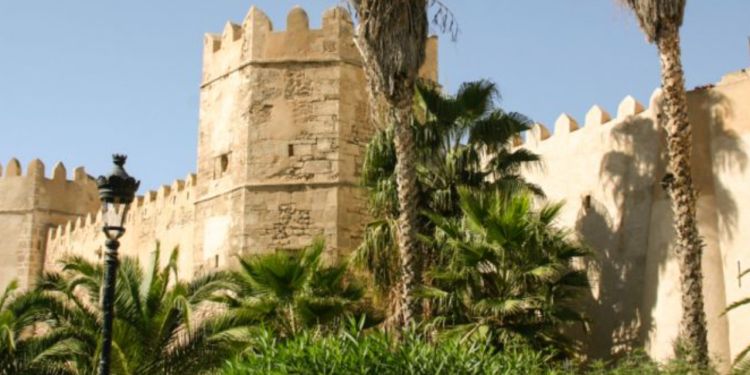
Nicknamed the "Southern Capital City", Sfax is the second Tunisian metropolis and the major economic hub. Famous for its economic dynamism and huge infrastructure, it has been attracting many expatriates, including professionals, students and tourists, over the years by providing various opportunities and a harmonious living environment.
Sfax hosts not only a wide transport network and road infrastructure which connect it to the rest of the country but also shopping malls, universities, an international airport and a commercial port, among others.
As a whole, the city has great human potential, thanks to which it has been chosen to host a major national technology center specialized in information and technology and multimedia. Indeed, Sfax has made its place within the African and Mediterranean regions.
Buy or rent accommodation in Sfax?
Foreigners can legally purchase accommodation in Tunisia (though some conditions apply). Whether you decide to buy or rent accommodation in Sfax depends on a number of factors.
The biggest consideration here would, of course, be your budget. Property in Sfax is generally cheaper, especially when compared to real estate in Europe or the United States. However, it is still a serious financial commitment and should be researched properly.
Sfax is a modern city with a lot of history. It's home to stunning well-preserved old architecture dating back to the 13th century. But away from the historical sections of the city, Sfax is an urban center with all the advantages of all city life: commercial plazas, skyscrapers, business centers, and more.
Sfax is a coastal city with easy access to beautiful beaches and lots of options for recreation. It has a relaxed yet energetic pace of life and offers a cheaper cost of living compared to the capital of Tunis.
If you are new to Sfax, you will probably start out by renting accommodation. This will allow you to learn more about the city, explore its different neighborhoods and make the decision on whether you would like to call it your home.
Which are the best neighborhoods in Sfax?
Most of the city's residential neighborhoods are found on the outskirts of the city. But you will also find options in or close to the city center — you may just need to look for a bit longer.
Sfax is divided into 16 distinct zones known as delegations. These are Agareb, Bir Ali Ben Khalifa, El Amra, El Hencha, Graïba, Jebiniana, Kerkennah, Mahrès, Menzel Chaker, Sakiet Eddaïer, Sakiet Ezzit, West Sfax (more developed and dynamic), South Sfax, Sfax City center, Skhira and Thyna.
The Medina is the city's central neighborhood, the old town, and its historic heart. It's busy and popular with tourists. Here, you will find lots of shops as well as over ten souks (local markets) where you can buy anything from food to handmade clothing.
Bab Jebli is another central area. It's home to two bus stations, making travel to other areas of the city and nearby towns very convenient. However, while Bab Jebli is a popular area, it's not as touristic as the Medina, which means low food and accommodation prices.
Bab Diwan (Bab el Bhar) is located on the edge of the coast and is generally busy with tourists. It's home to the Place de la Victoire, which you will see on many Tunisian postcards. The city's port area used to be primarily industrial. However, in recent years, the local municipality has been putting effort into refurbishing and enhancing these areas, so you can find accommodation options here as well.
How to find accommodation in Sfax?
Finding accommodation can be quite a difficult task in Sfax since it is, above all, a tourist city. You should probably start by seeking the help of a real estate agency, especially if you are searching remotely. You can also check out offers available on the Internet or in local newspapers. Check websites like Mubawab, Tayara, and others.
If you have friends, relatives, or contacts on the spot, word of mouth may also be a useful search tool. Being accompanied by an Arabic-speaking person during your search on the spot will also be a considerable advantage.
If you are already in Sfax, it's a good idea to explore the city and see what neighborhoods you like. This way, you will get acquainted with the different areas and the city and will be able to make a more informed decision when renting accommodation.
Rent prices in Sfax
How much you will pay for rent in Sfax depends on what type of accommodation you want to rent (apartment, house, villa, etc.), the area where you want to live, the size of the accommodation, and more.
If you want to rent a studio outside the city center, you may be able to do it for around $100. However, if you want to stay close to all the action in the city center, you will need upwards of $200 for a one-bedroom apartment. If you are looking for a bigger apartment (two to three bedrooms), you will need to pay around $300 to $500.
As Sfax is a seaside town, it's a popular tourist destination. Because of this, you will also find a lot of villas, condos and vacation rentals here. These are generally more expensive — but more affordable if shared by a group of people.
Signing a rental contract in Tunisia
Once you've found the perfect place to rent, you will need to sign a rental contract. Unfortunately, there are no standard rental contracts in Tunisia, so you will probably be signing a free-form agreement listing the conditions of your rent, such as duration, pricing, responsibilities, and more.
Make sure your rental agreement includes the essentials like the length of your rental agreement, rental price, and how much you paid as a deposit.
Here are a few things to take into account when signing the lease in Tunisia:
- Lease contracts are typically concluded on a yearly basis. You may be able to find rentals for six months, but this is quite rare and will have to be negotiated with the owner of the housing unit.
- Generally, you will need to pay your yearly rent upfront. In some cases, you can negotiate with your landlord and pay your rent by semester or quarterly. Note that you will also need to pay a deposit and agent fees (if applicable).
- Typically, you will need to pay a deposit in the amount of two months' rent. This is rarely negotiable. You will get your deposit back when your rental contract is over and you move out. Make sure to keep your rental deposit receipt till the end of your rental contract.
- Rental taxes are the owner's responsibility, and you should not be asked to make any contributions towards paying them.
- It is not recommended to give a departure notice to the owner before the end of the first year, otherwise, you will have to continue to pay rent unless you find another lessee at the end of the notice.
- Typically, the departure notice has a three-month duration but can be negotiated with the owner before the signature of lease documents.
- Note that your landlord may also stop the lease contract by giving you a three months notice. In this case, you will need to find new accommodation and move out.
- If the rent price is not mentioned in the lease contract, it is assumed that both parties have agreed to the area's current rent prices. However, it is not recommended to have a contract without the rent price clearly stated, as this may allow your landlord to increase the rent.
Important:
Make sure to draw up an inventory of all the furniture and appliances in the apartment before signing the lease documents, whether accompanied by the owner or a real estate agent. Feel free to take pictures of the premises and ask any questions. If you notice any damage to the apartment, take note of it and show it to the landlord and real estate agent. This way, you won't be held responsible for the damage when you move out.
It's also advisable that you always have a third party present when signing the lease. This can be a real estate agent, a real estate lawyer, or even your colleague or friend from Tunisia. They will act as witnesses to the lease you are signing and may also be able to help you out in case you have any questions to ask the landlord.
Never sign a contract in a language that you don't understand. If your contract is drafted in French or Arabic, you can ask for a legalized English translation. Alternatively, have someone who can speak French or Arabic translate the contract for you and explain all the clauses in detail. You are strongly advised against signing anything you don't understand and double-check with the agent or lawyer if any clauses in the contract are confusing or don't seem right to you.
To rent accommodation in Sfax, you will typically need to provide the following documents:
- three original copies of the lease contract
- five certified photocopies of the lease
- the legalization of your signature and that of the owner at the nearest municipality
Note that two originals and five certified copies have to be remitted to the Recette des Finances for authentication.
Fees vary according to the rent price. You will then have to go back to the Recette des Finances to fetch the same documents.
Make sure to save your rent receipts, as you may need to present these to the administration upon your final departure from Tunisia.
Buying property in Sfax
If you've already spent some time in Sfax and have come to love this city, you may be looking into buying property here. As a foreigner, you can legally buy property in Tunisia. You can buy property to live in, or you can purchase real estate as an investment. Sfax is a popular tourist destination, and renting out accommodation here can be a good passive source of income.
If you are thinking about buying property in Sfax, you will need to fulfill several conditions:
- The property must be in an urban or tourist zone (make sure to confirm that the property does not have agricultural purposes).
- The land must be registered with the competent Land Conservation so that it is linked to a land title. Note that all properties have to be registered in accordance with Tunisian laws. Seek the assistance of an approved real estate professional to ensure that the transaction is legal.
- The seller of the property must be officially identified as the owner of the property for sale.
- The property must be exempt from retention of title in favor of the Tunisian State (due to eminent domain or nationalization under the law of 12 May 1964).
To purchase property in Tunisia, the following documents are generally required:
- the authorization of the city or town governorship where the property is located. Note that procuring this document may take some time.
- the approval of the Central Bank of Tunisia. To receive this approval, you will need to open a non-resident account in foreign currency and request the bank to provide you with an investment record stating that the funds are intended for the acquisition of real estate property.
Before making any real estate investments in Sfax, it is strongly advised that you do proper research on the real estate market in Tunisia. It is also a good idea to consult a real estate lawyer about the legal conditions of your purchase and make sure you are aware of all the specifics of buying property in Tunisia.
Useful links:
We do our best to provide accurate and up to date information. However, if you have noticed any inaccuracies in this article, please let us know in the comments section below.








